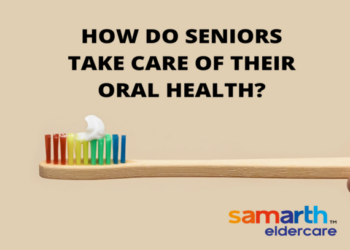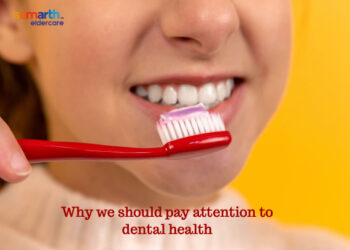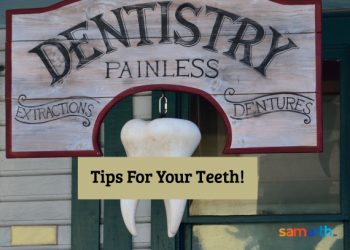As the years pass by, our teeth get weaker and there is an increased risk of developing dental and oral health conditions. After all, a lifetime’s worth of chewing, grinding and general wear and tear are bound to leave a mark on your pearly whites.
Compared to the overall health of an individual, oral and dental health is often neglected. As adults and seniors, we get our eyes checked, our blood tested, and also try to take more walks, but not many of us bother to schedule regular dental appointments. This can result in inflamed gums, tooth decay, cavities, and infections – all of which can severely affect your day-to-day affairs.
Wondering where and how to get started? Here is a list of some of the most common dental problems with tips to prevent and/or address them.

Join Now >
Dry mouth
As we age, some of us experience decreased saliva production – this is known as dry mouth or xerostomia. This happens because of sugar and acid build-up in the mouth.
With not enough saliva in the mouth, it can get difficult to eat, swallow, or even talk. A common side effect of a lot of medications, dry mouth can also lead to tooth decay or infection. Chewing gum or candies can help stimulate saliva production, while drinking water regularly can help rinse the acid and sugar build-up.
Gum disease
Gum disease or periodontal disease is a common problem in seniors and is caused by bacteria in plaque and tartar. This irritates the gums, making them more susceptible to swelling, redness and bleeding.
If left untreated, the gums can pull away from the teeth, resulting in pockets of space that are prone to plaque and food residue build-up. Eventually, periodontal disease has the ability to destroy the gums, bone and ligaments supporting the teeth leading to tooth loss.
Smoking is one of the leading causes, so it would be best to quit or at least cut down on smoking. Brush twice and day and floss frequently to maintain good oral health. Also, remember to schedule regular check-ups with your dentist for prevention and early detection.
Receding gums
Receding gums is a gradual process in which over time gums pull back from the surface of the teeth, exposing the root of the tooth and creating space for food and bacteria build-up.
From smoking to genetics, poor dental health and plaque build-up, gum recession can be the result of a number of factors. If left untreated, it can lead to sensitivity and tooth loss.
Brushing and flossing regularly are important to prevent this condition. Cutting down on your smoking and sugar intake can also help keep receding gums at pay.
Tooth decay
Caused by a build-up of plaque and tartar, the risk of tooth decay increases with every passing year. Decreased saliva production, and a diet that includes sugary foods can also trigger tooth decay.
To keep infections and cavities at bay, make sure to brush your teeth twice a day, along with flossing. Ensure you visit your dentist for your regular check-ups and clean-ups if needed.
Oral Cancer
According to various studies, seniors are more at risk of developing oral cancer. For those who drink or smoke regularly, the risk is even higher.
As with any other form of cancer, early diagnosis is extremely crucial for timely treatment and care. If you notice any open sores, ulcers, and changes in the lining of your mouth, tongue and lip, schedule a visit to your dentist immediately.
Apart from this, make it a point to include nutrient-rich foods in your daily diet to promote good dental and oral health. Calcium-rich food such as milk, cheese, and yoghurt can boost your teeth’s enamel and neutralise acids produced by plaque germs. Rich in phosphorus, foods such as eggs, fish, nuts, beans and lean meat are known to aid dental health. Loading up on leafy greens such as spinach and kale supports gum health, keeps teeth clean and healthy, and lowers the risk of plaque build-up. Loaded with vitamin C, citrus fruits such as oranges and lime help keep the gum healthy. Avoid or cut down on smoking and drinking. Also, be wary of sugary foods and sticky candies.
Whether we realize it or not, oral health can significantly impact the quality of our lives. So, taking care of your teeth and gums is just as important as the rest of your body.









